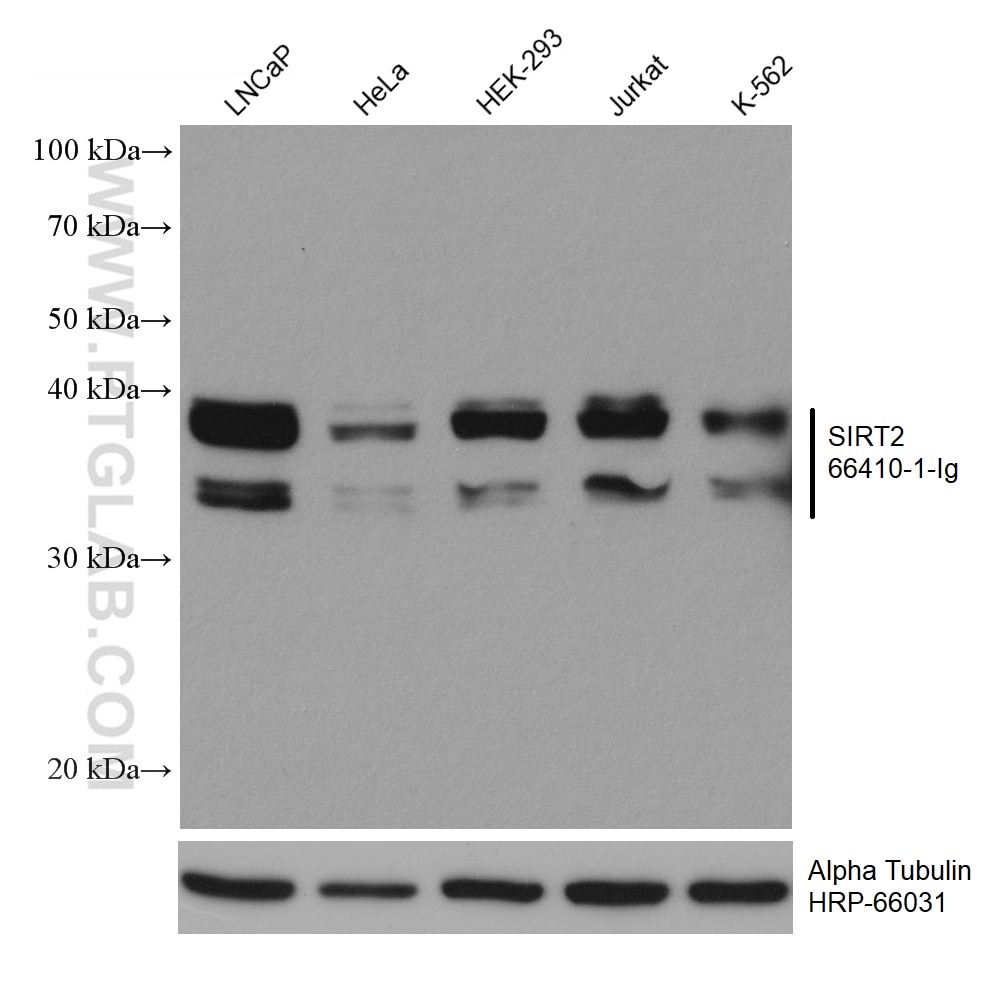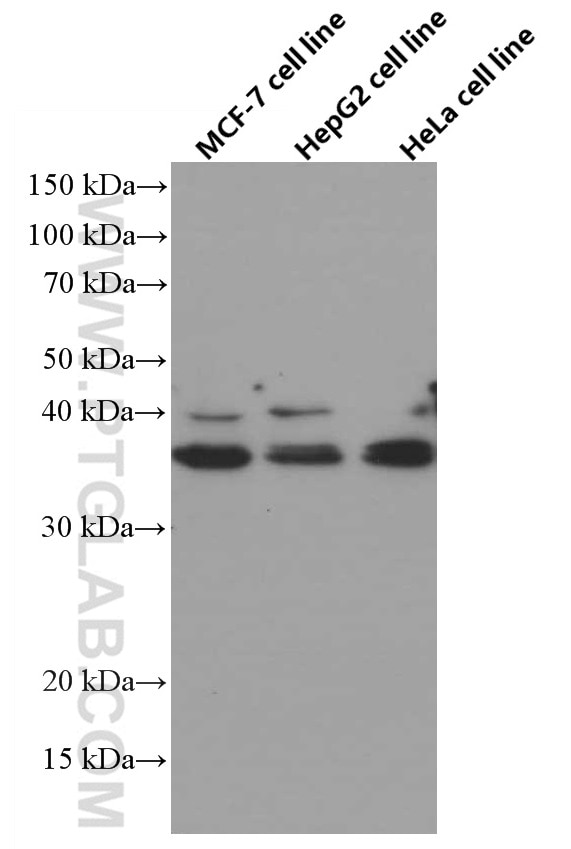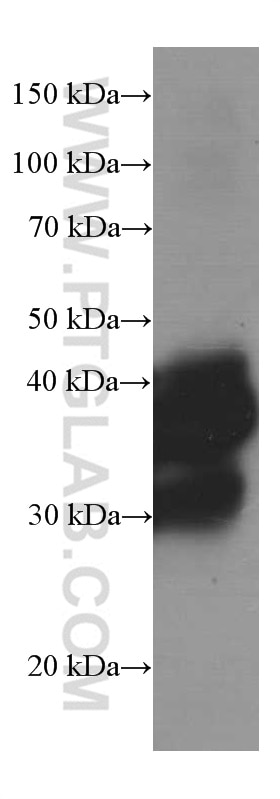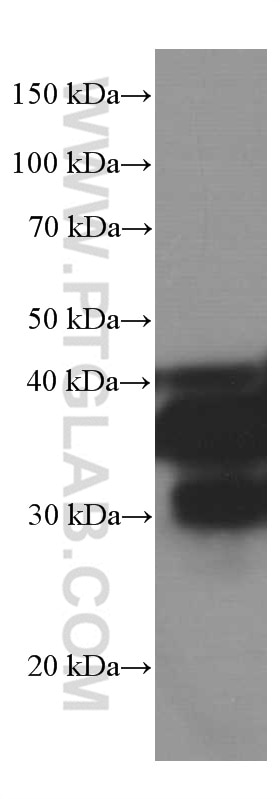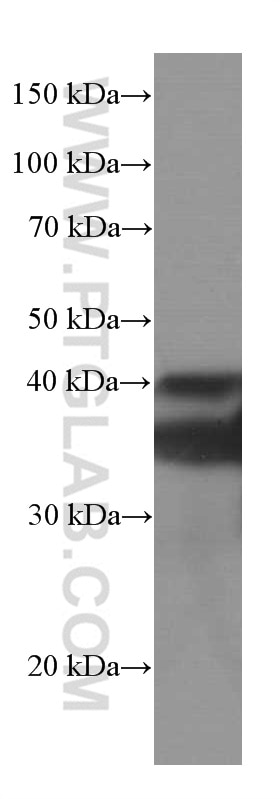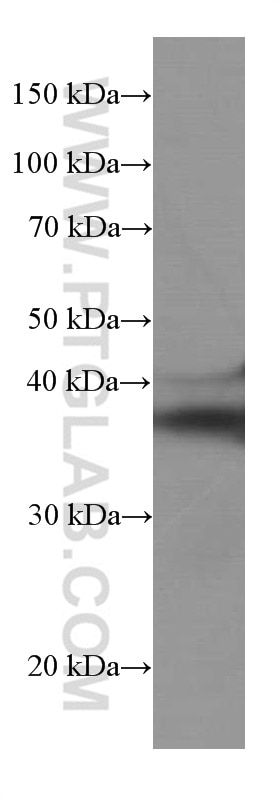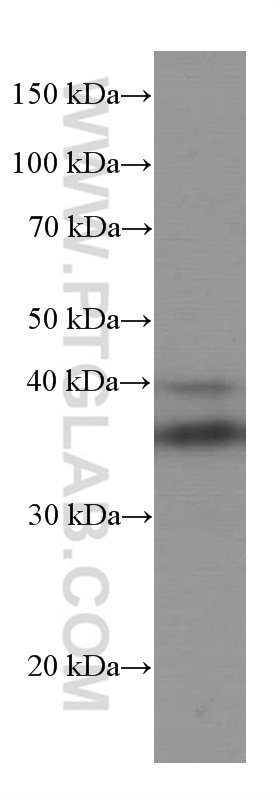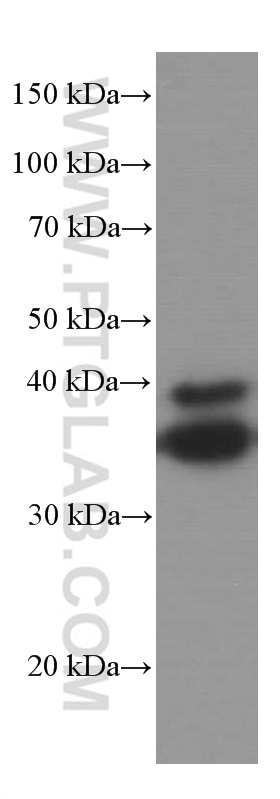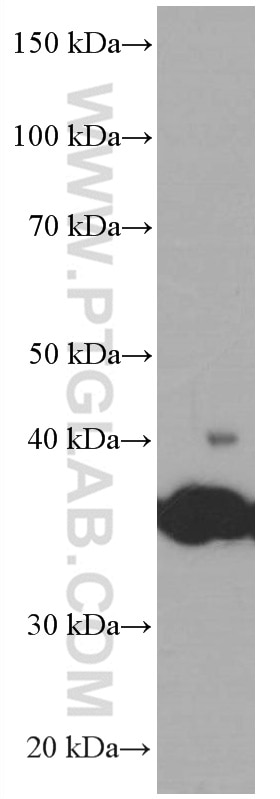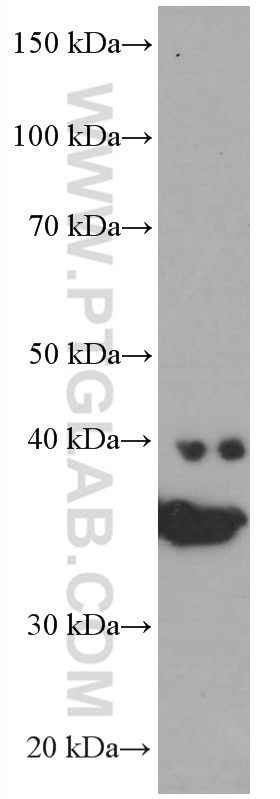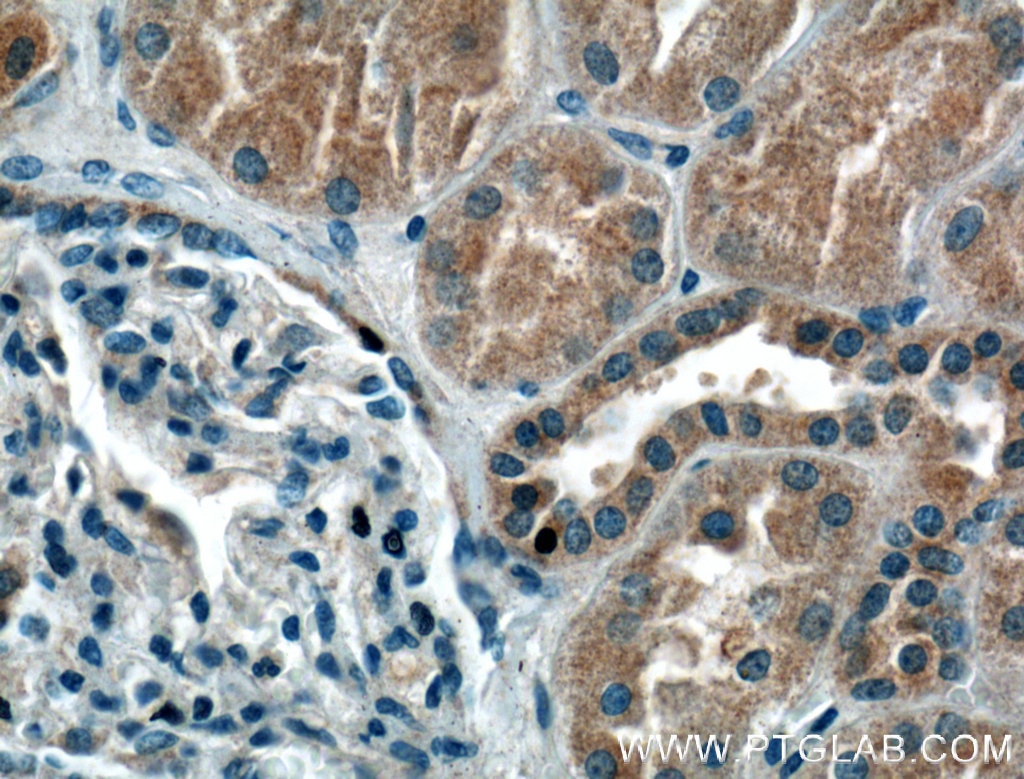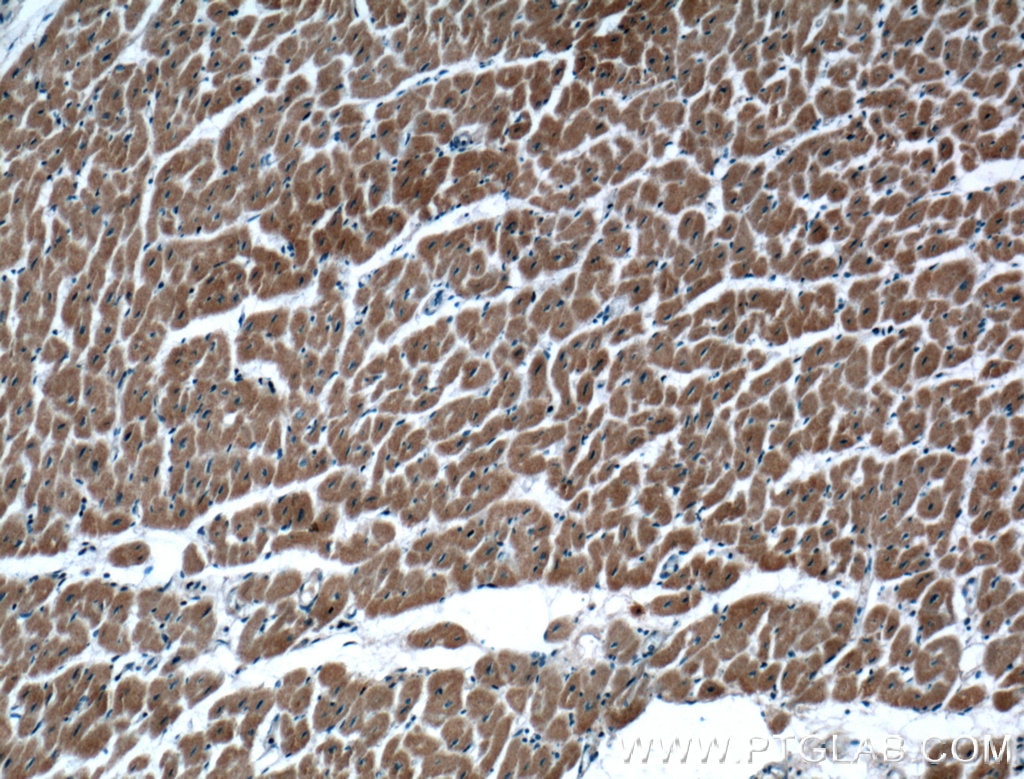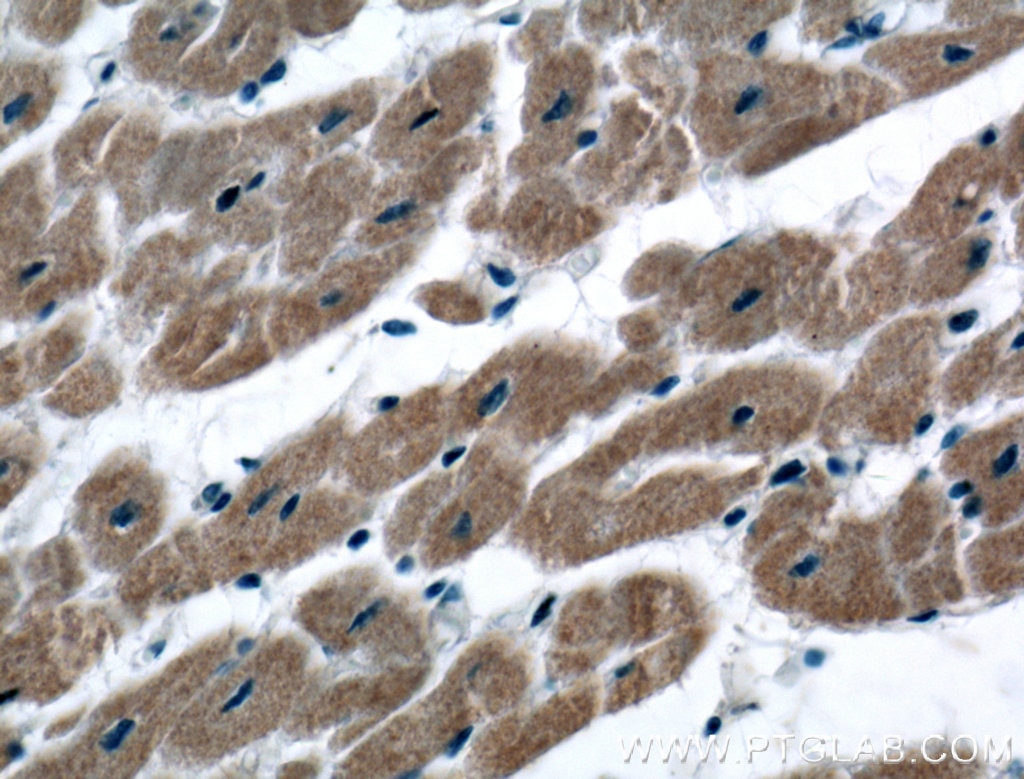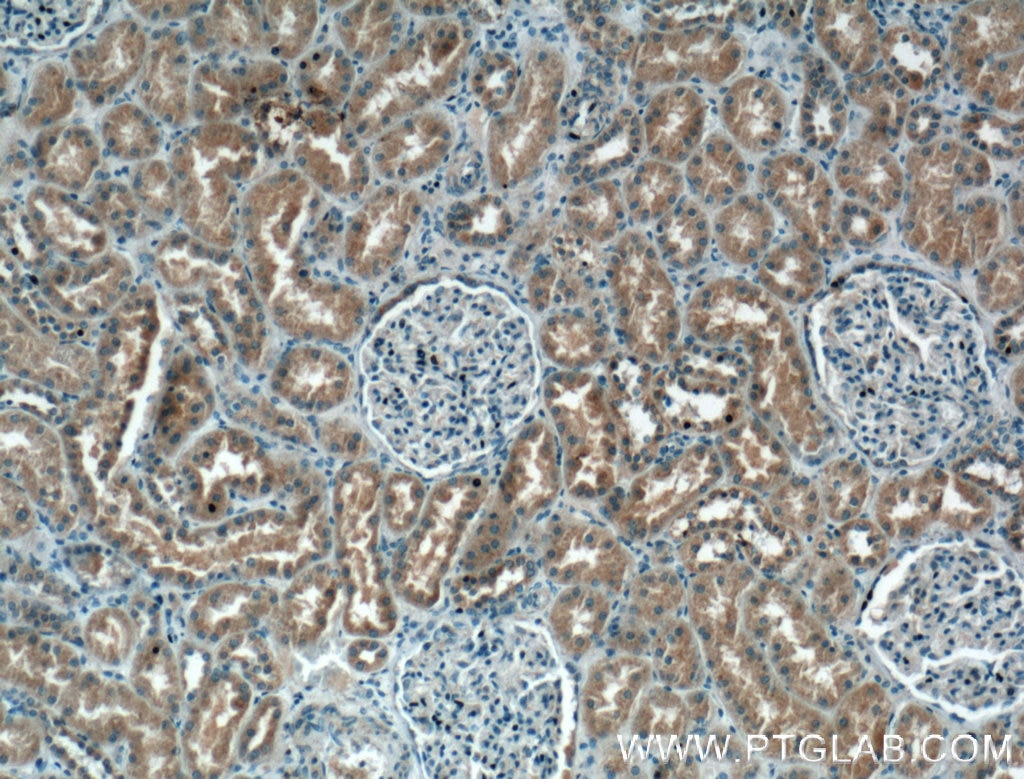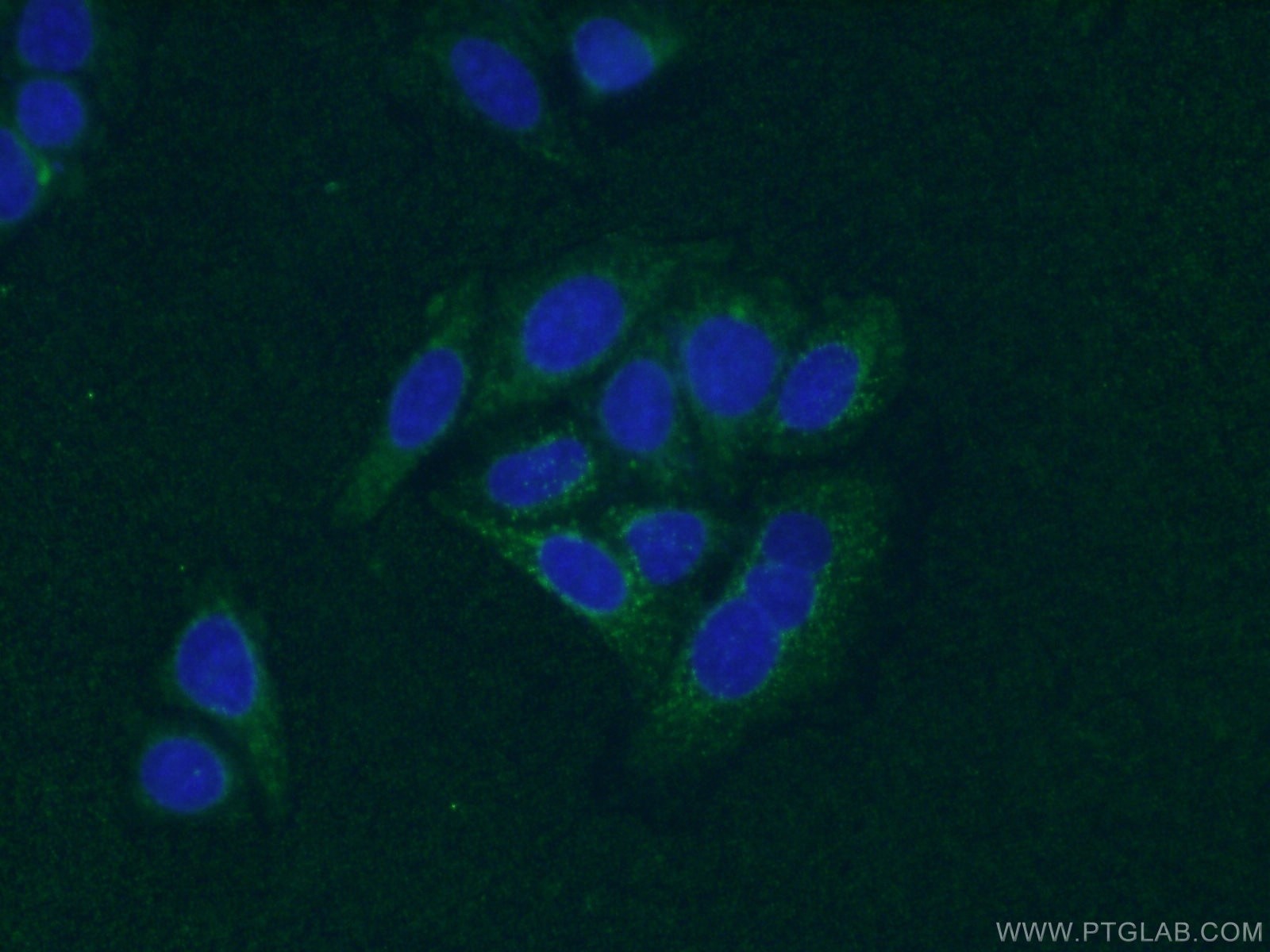Validation Data Gallery
Tested Applications
| Positive WB detected in | LNCaP cells, fetal human brain tissue, pig heart tissue, pig brain tissue, rat heart tissue, rat brain tissue, mouse brain tissue, MCF-7 cells, HeLa cells, HEK-293 cells, Jurkat cells, K-562 cells |
| Positive IHC detected in | human kidney tissue, human heart tissue Note: suggested antigen retrieval with TE buffer pH 9.0; (*) Alternatively, antigen retrieval may be performed with citrate buffer pH 6.0 |
| Positive IF/ICC detected in | HepG2 cells |
Recommended dilution
| Application | Dilution |
|---|---|
| Western Blot (WB) | WB : 1:5000-1:50000 |
| Immunohistochemistry (IHC) | IHC : 1:50-1:500 |
| Immunofluorescence (IF)/ICC | IF/ICC : 1:50-1:500 |
| It is recommended that this reagent should be titrated in each testing system to obtain optimal results. | |
| Sample-dependent, Check data in validation data gallery. | |
Published Applications
| KD/KO | See 5 publications below |
| WB | See 10 publications below |
| IHC | See 4 publications below |
| IF | See 3 publications below |
| IP | See 1 publications below |
Product Information
66410-1-Ig targets SIRT2 in WB, IHC, IF/ICC, IP, ELISA applications and shows reactivity with human, mouse, rat, pig samples.
| Tested Reactivity | human, mouse, rat, pig |
| Cited Reactivity | human, mouse, rat |
| Host / Isotype | Mouse / IgG1 |
| Class | Monoclonal |
| Type | Antibody |
| Immunogen |
CatNo: Ag7756 Product name: Recombinant human SIRT2 protein Source: e coli.-derived, PET28a Tag: 6*His Domain: 1-352 aa of BC003547 Sequence: MDFLRNLFSQTLSLGSQKERLLDELTLEGVARYMQSERCRRVICLVGAGISTSAGIPDFRSPSTGLYDNLEKYHLPYPEAIFEISYFKKHPEPFFALAKELYPGQFKPTICHYFMRLLKDKGLLLRCYTQNIDTLERIAGLEQEDLVEAHGTFYTSHCVSASCRHEYPLSWMKEKIFSEVTPKCEDCQSLVKPDIVFFGESLPARFFSCMQSDFLKVDLLLVMGTSLQVQPFASLISKAPLSTPRLLINKEKAGQSDPFLGMIMGLGGGMDFDSKKAYRDVAWLGECDQGCLALAELLGWKKELEDLVRREHASIDAQSGAGVPNPSTSASPKKSPPPAKDEARTTEREKPQ 相同性解析による交差性が予測される生物種 |
| Full Name | sirtuin (silent mating type information regulation 2 homolog) 2 (S. cerevisiae) |
| Calculated molecular weight | 43 kDa |
| Observed molecular weight | 37-45 kDa |
| GenBank accession number | BC003547 |
| Gene Symbol | SIRT2 |
| Gene ID (NCBI) | 22933 |
| RRID | AB_2881782 |
| Conjugate | Unconjugated |
| Form | |
| Form | Liquid |
| Purification Method | Protein G purification |
| UNIPROT ID | Q8IXJ6 |
| Storage Buffer | PBS with 0.02% sodium azide and 50% glycerol{{ptg:BufferTemp}}7.3 |
| Storage Conditions | Store at -20°C. Stable for one year after shipment. Aliquoting is unnecessary for -20oC storage. |
Background Information
The silent information regulator(SIR2) family of genes is highly conserved from prokaryotes to eukaryotes and is involved in diverse processes, including transcriptional regulation, cell cycle progression, DNA damage repair, and aging. SIR2 contains a 323 amino acid catalytic core domain with a NAD-binding domain and a large groove which is the likely site of catalysis. SIR2 is widely expressed and highly expressed in the heart, brain, and skeletal muscle, while it is weakly expressed in the placenta and lungs. Down-regulated in many gliomas suggesting that it may act as a tumor suppressor gene in human gliomas possibly through the regulation of the microtubule network. SIRT2 exists in various isoforms and the molecular weight of isoforms are 35 kDa, 40 kDa, and 42 kDa.
Protocols
| Product Specific Protocols | |
|---|---|
| IF protocol for SIRT2 antibody 66410-1-Ig | Download protocol |
| IHC protocol for SIRT2 antibody 66410-1-Ig | Download protocol |
| WB protocol for SIRT2 antibody 66410-1-Ig | Download protocol |
| Standard Protocols | |
|---|---|
| Click here to view our Standard Protocols |
Publications
| Species | Application | Title |
|---|---|---|
Adv Sci (Weinh) S-ketamine Alleviates Neuroinflammation and Attenuates Lipopolysaccharide-Induced Depression Via Targeting SIRT2 | ||
Redox Biol A redox-mediated conformational change in NQO1 controls binding to microtubules and α-tubulin acetylation.
| ||
Cell Death Dis FBXO31 is upregulated by METTL3 to promote pancreatic cancer progression via regulating SIRT2 ubiquitination and degradation | ||
CNS Neurosci Ther Proteomic analysis of the effects of caffeine in a neonatal rat model of hypoxic-ischemic white matter damage. | ||
Prostate SIRT2 promotes cell proliferation and migration through mediating ERK1/2 activation and lactosylceramide accumulation in prostate cancer
| ||
Biochim Biophys Acta Mol Basis Dis Spinal sirtuin 2 attenuates bone cancer pain by deacetylating FoxO3a |

